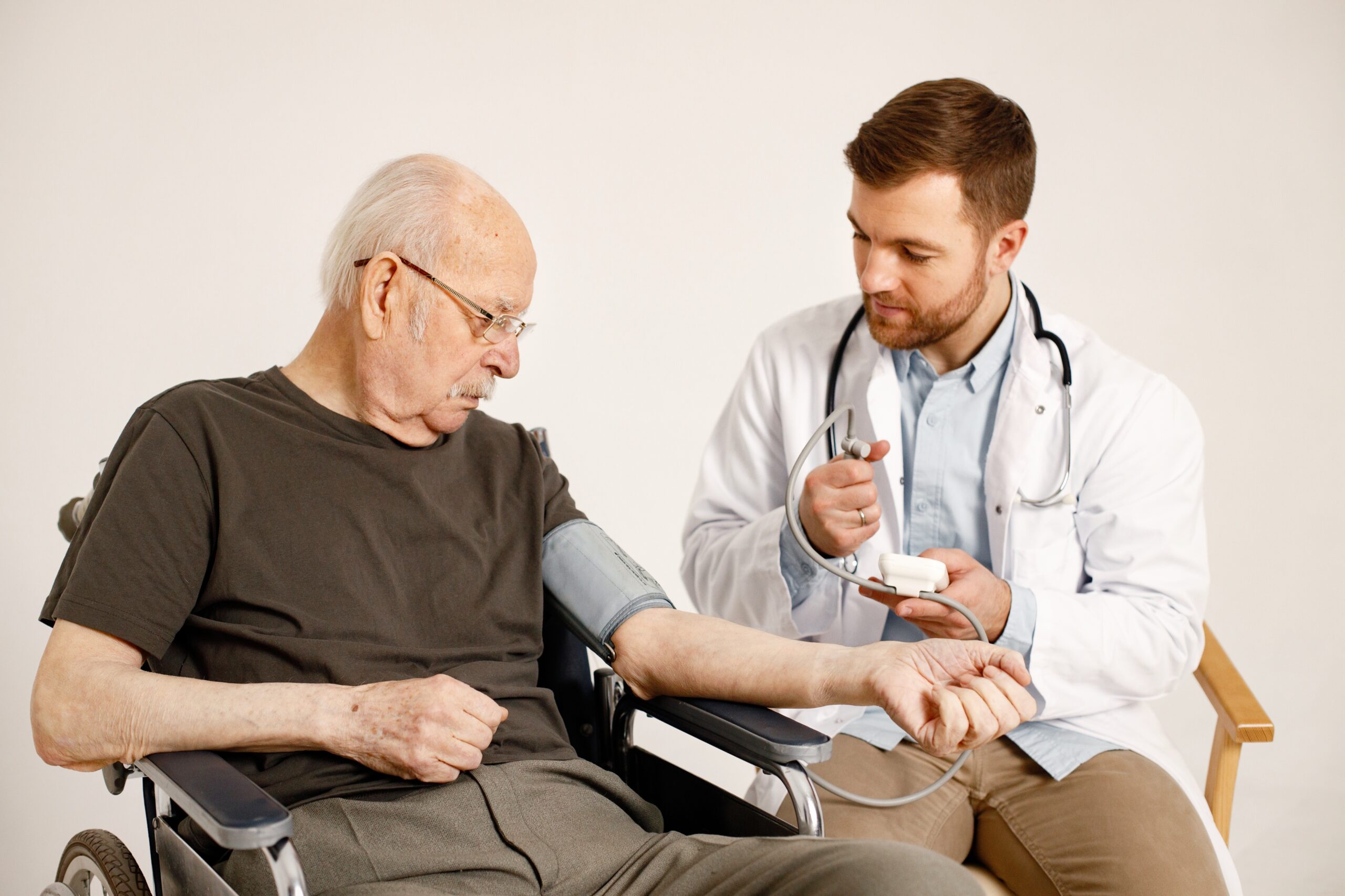Preventing Strokes in Older Adults: Strategies for a Healthy Future
Contents
- 1 Preventing Strokes in Older Adults: Strategies for a Healthy Future
- 1.1 Introduction
- 1.2 Preventing Strokes in Older Adults
- 1.2.1 Understanding Strokes and Risk Factors
- 1.2.2 1. Know the Warning Signs
- 1.2.3 2. Manage High Blood Pressure
- 1.2.4 3. Maintain a Healthy Weight
- 1.2.5 4. Quit Smoking
- 1.2.6 5. Manage Diabetes
- 1.2.7 6. Stay Active
- 1.2.8 7. Consume a Heart-Healthy Diet
- 1.2.9 8. Limit Alcohol Intake
- 1.2.10 9. Manage Stress
- 1.2.11 10. Regular Check-ups
- 1.2.12 11. Medication Adherence
- 1.2.13 12. Stay Hydrated
- 1.2.14 13. Supportive Social Connections
- 1.2.15 14. Brain Health
- 1.2.15.1 Heart-Healthy Eating for Seniors Tips
- 1.2.15.2 Common Heart Conditions in Old Age and Their Treatments
- 1.2.15.3 Cardiac Rehabilitation for Elderly Patients
- 1.2.15.4 Osteoporosis Prevention in Seniors
- 1.2.15.5 Understanding Arthritis: A Comprehensive Guide to Joint Health
- 1.2.15.6 Managing Arthritis Pain in Seniors
- 1.2.15.7 Exercise Tips for Maintaining Strong Bones in Old Age
- 1.2.15.8 Age-Related Changes in Bone Density and Structure
- 1.3 FAQs
- 1.4 Conclusion
Read DISCLAIMER
Learn practical methods for shielding elderly persons from strokes. For a higher quality of life, find out how to lower risk factors, adopt a heart-healthy lifestyle, and place a higher priority on stroke prevention.

Introduction
The significance of preventative health practices increases as we become older. The good news is that many strokes may be avoided via proactive lifestyle choices and risk management. Strokes are a serious issue for older persons. In this thorough guide, we’ll go through the most effective measures senior citizens may take to lower their risk of stroke and foster a healthy, fulfilling future.
Preventing Strokes in Older Adults
Understanding Strokes and Risk Factors
It’s critical to have a thorough grasp of strokes and the variables that contribute to their incidence before diving into preventative techniques.
1. Know the Warning Signs
Learn the warning indications of a stroke, which include abrupt numbness, disorientation, difficulty speaking, a strong headache, and difficulty walking. To seek early medical assistance, it is important to recognize these symptoms.

2. Manage High Blood Pressure
One of the main risk factors for strokes is high blood pressure. Follow your doctor’s advice, keep an eye on your blood pressure, and think about making lifestyle adjustments to keep it under control.
3. Maintain a Healthy Weight
Weight gain raises the risk of several illnesses, including strokes. Achieve and maintain a state of well-being through embracing a harmonious diet and engaging in regular physical activity to attain a healthy weight.

4. Quit Smoking
Stroke risk is dramatically increased by smoking. If you smoke, get help quitting so that you may improve your general health and lower your risk of stroke.
5. Manage Diabetes
Diabetes increases the risk of stroke. Adopt a diabetes-friendly lifestyle and carefully monitor your blood sugar levels with the help of your healthcare specialist.
6. Stay Active
Regular exercise can reduce the risk of stroke and improve cardiovascular health. Take part in enjoyable activities, whether they be dancing, swimming, or strolling.
7. Consume a Heart-Healthy Diet
Put an emphasis on eating a diet full of fresh produce, whole grains, lean meats, and healthy fats. Limit your consumption of trans, saturated, and salty fats.

8. Limit Alcohol Intake
Drinking too much alcohol can increase blood pressure and increase the chance of having a stroke If you choose to indulge in drinking, do it with moderation in mind.
9. Manage Stress
Cardiovascular health may be impacted by persistent stress. Use stress-reduction methods including yoga, deep breathing, and meditation.
10. Regular Check-ups
Attend routine medical exams to keep track of your general health and treat any risk factors as soon as they arise.
11. Medication Adherence
Take any prescription drugs that your doctor has recommended for you if you have diabetes or high blood pressure.

12. Stay Hydrated
In addition to promoting general health, adequate hydration can aid in reducing the risk of stroke.
13. Supportive Social Connections
Retaining solid social ties helps lower stress and enhance mental health, which benefits general health.
14. Brain Health
Take part in mental exercises like crossword puzzles, reading, or learning a new skill.
Read more about
Heart-Healthy Eating for Seniors Tips
Common Heart Conditions in Old Age and Their Treatments
Cardiac Rehabilitation for Elderly Patients
Osteoporosis Prevention in Seniors
Understanding Arthritis: A Comprehensive Guide to Joint Health
Managing Arthritis Pain in Seniors
Exercise Tips for Maintaining Strong Bones in Old Age
Age-Related Changes in Bone Density and Structure
FAQs
Can strokes be hereditary?
While family history can play a role in stroke risk, lifestyle choices have a significant impact. Adopting a healthy lifestyle can mitigate genetic predispositions.
Are there specific foods that can help prevent strokes?
Foods rich in antioxidants, omega-3 fatty acids, and fiber, such as berries, fish, and whole grains, are beneficial for heart health and stroke prevention.
Can a stroke survivor take preventive measures?
Yes, stroke survivors can adopt preventive measures to reduce the risk of a future stroke. Seek guidance from a medical professional for tailored advice and suggestions.
How can I support a loved one in stroke prevention?
Encourage healthy habits, offer companionship for physical activities, and provide emotional support to help your loved one in stroke prevention.
Can stress really impact stroke risk?
Yes, chronic stress can contribute to high blood pressure and other risk factors for strokes. Maintaining a sense of balance in stress levels contributes significantly to holistic well-being.
Are all strokes preventable?
While not all strokes can be prevented, many can be avoided through adopting a healthy lifestyle and effectively managing risk factors.
Conclusion
Elderly stroke prevention necessitates a proactive approach to health and wellbeing. Older persons can greatly lower their risk of stroke by using these measures and making well-informed decisions, and they can live longer, healthier lives.
